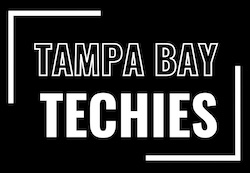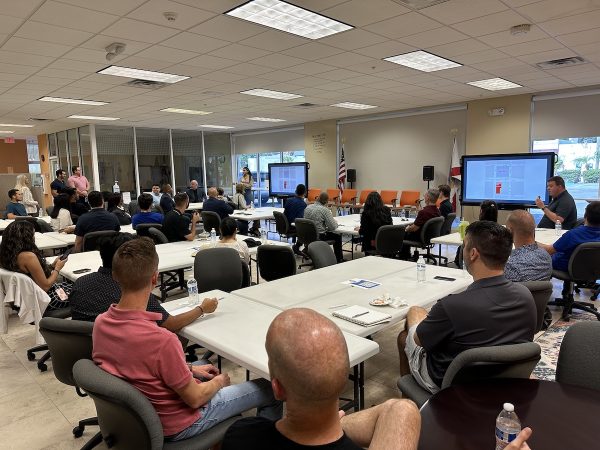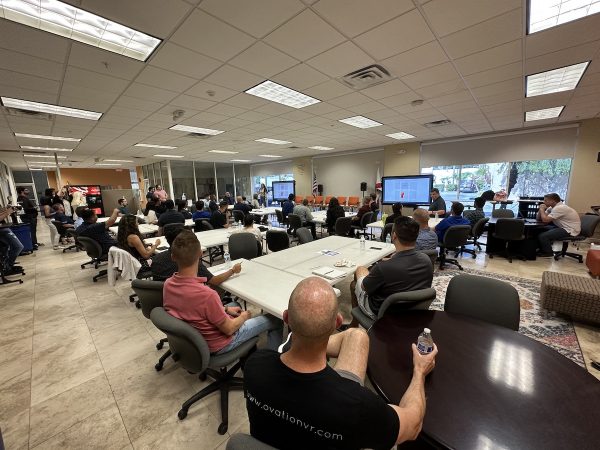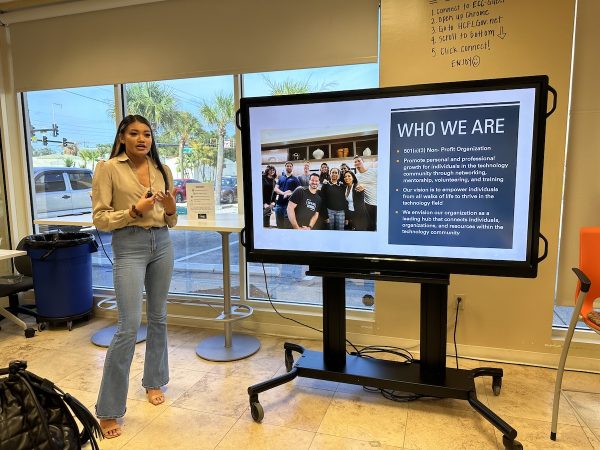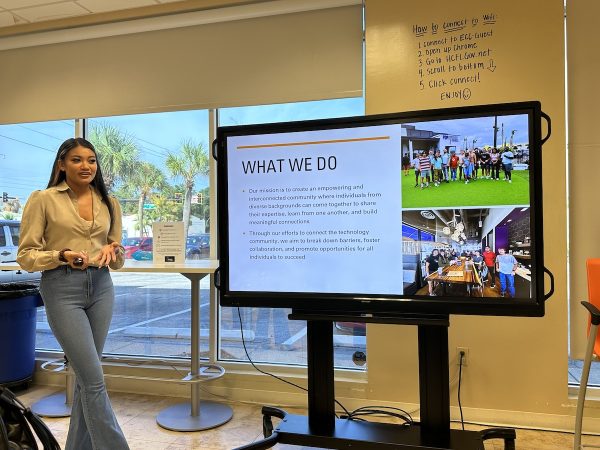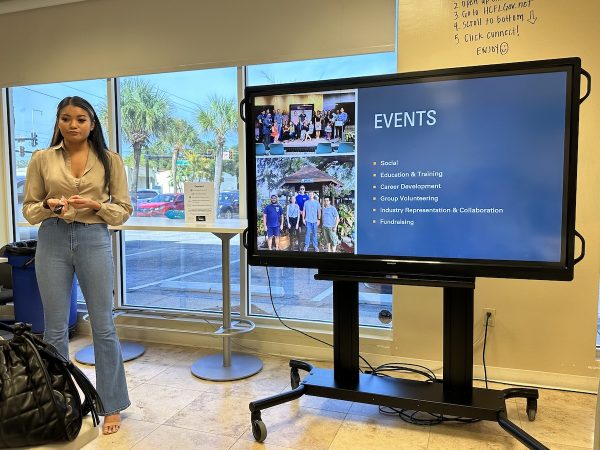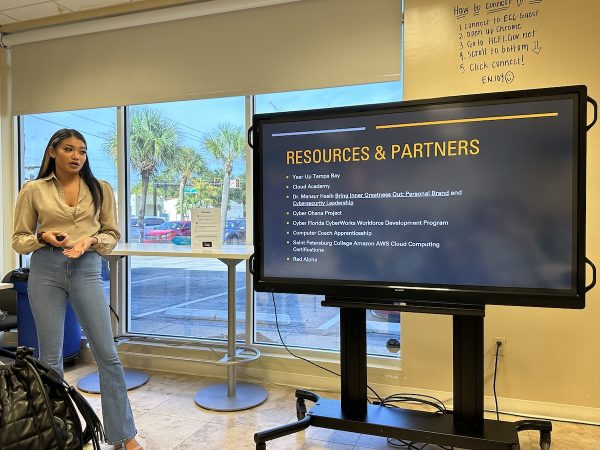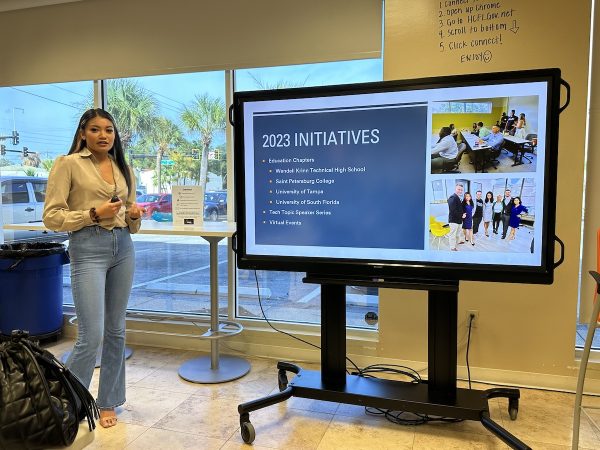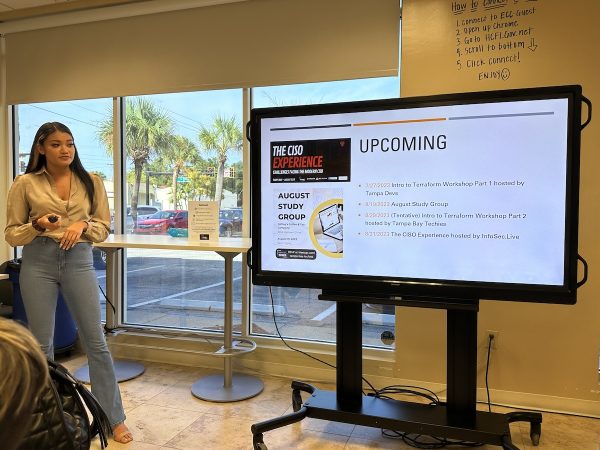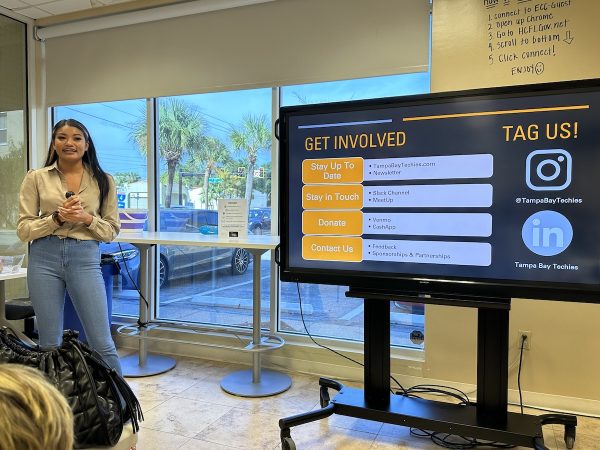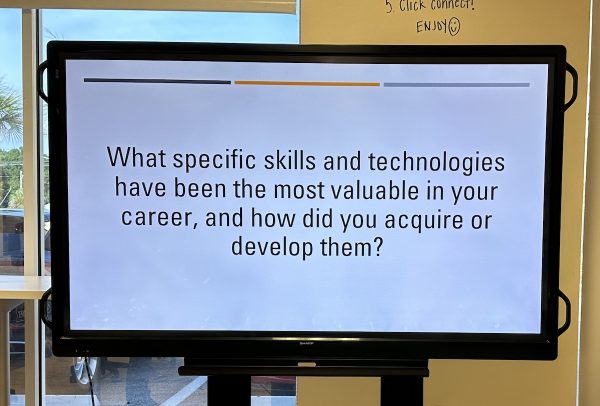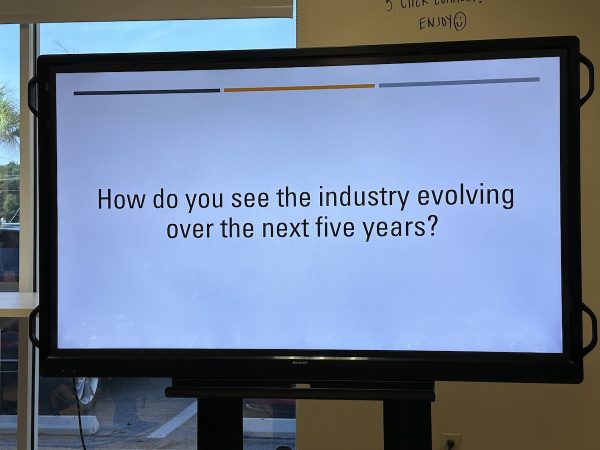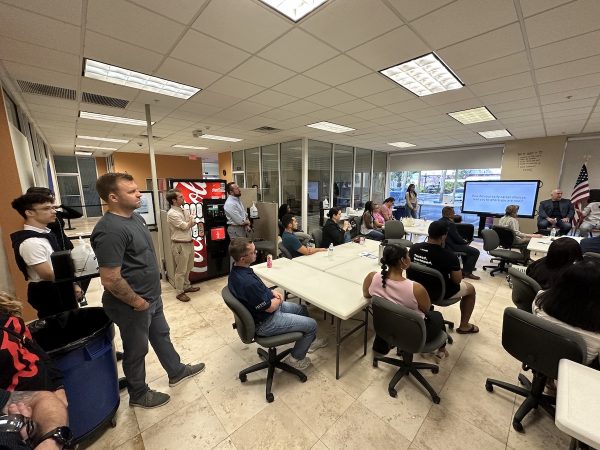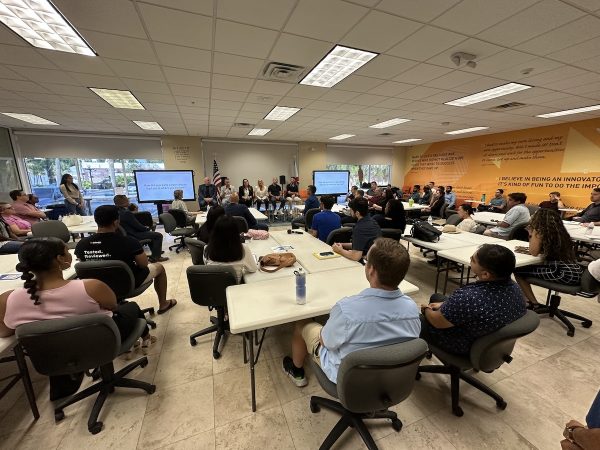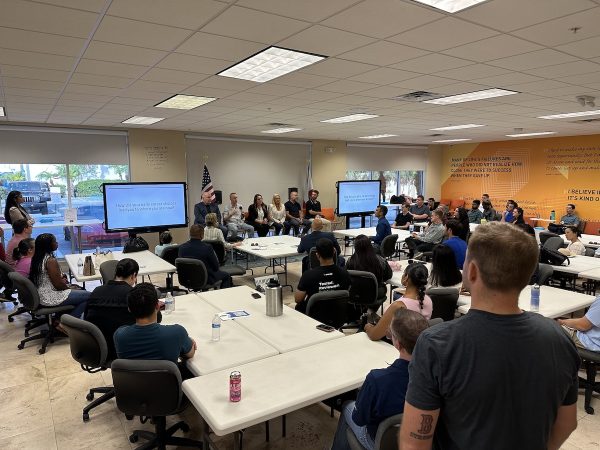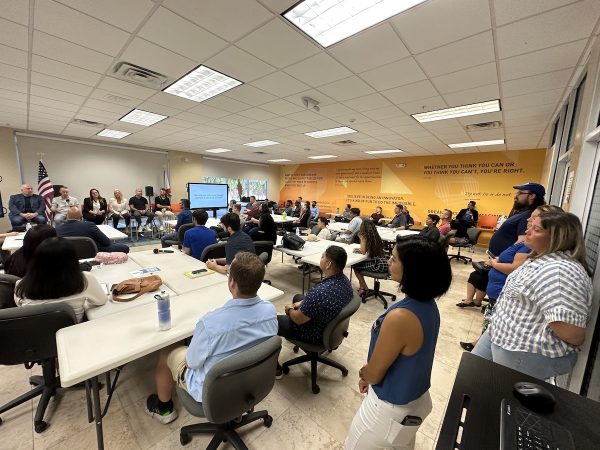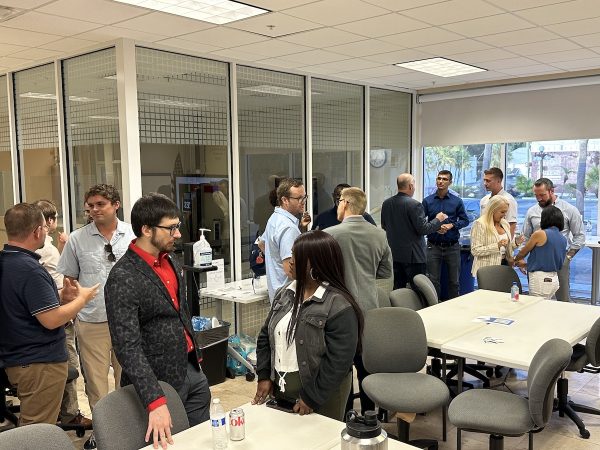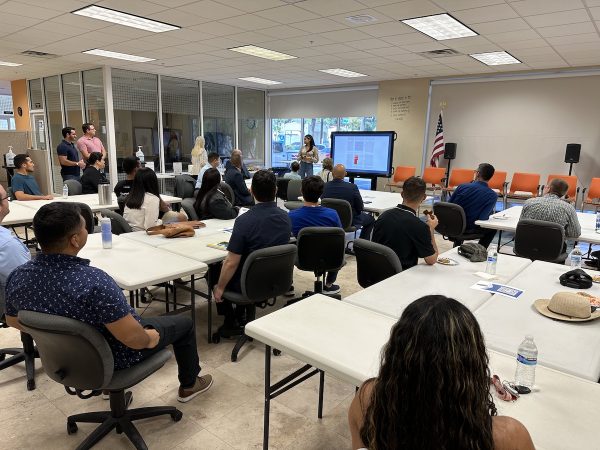
On Tuesday, July 25th at the Entrepreneur Collaborative Center, Tampa Bay Techies held their “Breaking into Tech” event that featured a panel of successful and interesting local techies sharing their advice and experience for people who want to get into the technology industry.
It was standing room only at the event, and it looks like a lot of people here in Tampa Bay are looking to break into tech or like me, want to enable their fellow techies land a job in our exciting field.
The intro
The session opened with founder Samantha Ramos talking about Tampa Bay Techies, which has only been around a few months but has already made a considerable positive impact on the Tampa Bay tech community.
They are:
- A 501(c)(3) non-profit organization
- with a mission to promote personal and professional growth for individuals in the technology community through networking, mentorship, volunteering, and training
- whose vision is to empower individuals from all walks of life to thrive in the technology field
- and aim to be a leading hub that connects individuals, organizations, and resources within our tech community.
In the short amount of time they’ve been around, they’ve put together all sorts of events from presentations and panel sessions (including this one) to study groups (their next one is on Saturday, August 19th at Joffrey’s Coffee in Midtown) to volunteering to social meetups.
Samantha’s intro was followed by some quick talks by the sponsors:
The event wouldn’t have been possible without them —thanks so much for your sponsorship!
The panel session
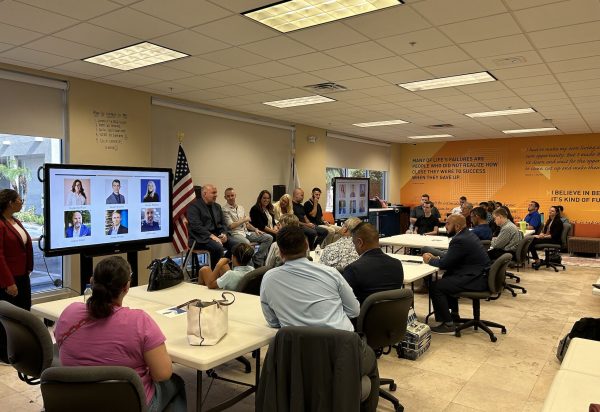
The panel comprised an impressive group with a wide array of experiences in different areas of the local tech industry, listed in alphabetical order by surname:
- Jason Allen, CTO at Digital Hands
- Austin Eovito, Senior AI Engineer at IBM
- Jeff Fudge, Cloud Practice Director at Blue Mantis
- Steve Hindle, Security executive and advisor
- Ashley Putnam, Director of Business Development at Patriot Talent Solutions
- Suzanne Ricci, CEO at Computer Coach
They were moderated by Christine Chinapoo.
Here are my (admittedly incomplete) notes from the panel session.
Skills and tech
What specific skills and technologies have been most valuable in your career, and how did you acquire or develop them?
Jeff:
- I started as a mainframe developer
- While tech skills are important, you need to leverage soft skills, especially empathy and collaboration
- You also need to check your biases
Steve:
- Know your audience — know who you’re talking to, what they want, and what they’re trying to get done
- Know the shifts in the your career — I once transitioned from working on systems to find one of the most prolific serial killers to the Edinburgh Fringe Festival
- Understand the business of the people you’re talking to
Suzanne:
- I started as a web designer and ended up managing 50 sites for commercial real estate in the era before CRMs
- I discovered that I have a passion for teaching, so I made a transition into tech training
- Soft skills are important
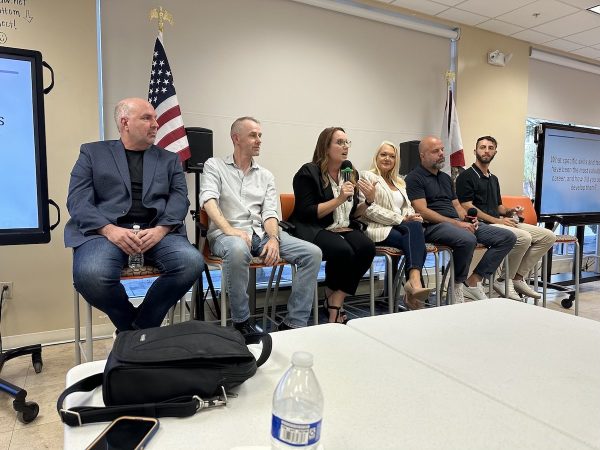
Ashley:
- I didn’t go into tech in the beginning
- I ended up in recruiting for mainframe developers to solve the Y2K problem
- The number one skill is relationship building
Jason:
- At the Future of Work conference held at Stanford just before COVID, I heard a speaker say that 20 years ago, you might expect to change your career once, maybe twice in your lifetime…
- …but these days, you can expect to change it four, five, maybe even six times now
- You need to build the skill of learning new skills
- The fundamentals that will help you as a techie (they helped me):
- C programming
- SQL
- TCP/IP
Austin:
- I’m going to echo the “learn how to learn” advice
- I was a military brat, moving around a lot, and then I went to Florida State and did “Florida State things”
- I started in research and ended up in applied science
- Remember that math is never going to go away — it is fundamental to what we do
- If you can, learn both low-level and high-level stuff
- Also keep in mind that soft skills are criminally underrated
Strength / special ability
[Editor’s note: Somehow, I managed not to write this question down — if you remember what it was, email me, message me on my LinkedIn profile, or let me know in the comments!]
Suzanne:
- I read 50 books a year — a lot in audiobook form — physics, career development, self-development
- I’m always in some kind of class. I’ve even taken cooking and dog training courses
- I maintain a commitment to learning, and I continuously study my industry
Ashley:
- [Steve] Ashley’s special ability is her connections!
Jason:
- I still code, which allows me to have intelligent discussion with the teams
- When you}re in charge, it’s important to understand all facets of the busines
Austin:
- I like what I do, which is a great help
- I read a lot; it’s how I learn best
- I approach my job with a childlike sense of wonderment
- I’m relatively driven
- I also have decent risk tolerance — I prefer to ask “Why shouldn’t I” over “Why should I?”
Jeff:
- My strength is my ability to pivot
- Don’t be afraid to take something on
- Don’t sell yourself short
Steve:
- Wow — everyone on this panel speaks in paragraphs!
- I’ll remind everyone of this Ozzy Osbourne quote: “Be kind to people on your way up the ladder, ’cause you’ll meet them on the way down.”
The next five years
How do you see the industry evolving over the next five years?
Austin:
- You’ve seen this ChatGPT thing, right? Tech like that is not going away
- Basically, any technology that creates the three T’s — time, talent, and treasure — will be seen as valuable
- Even with the current wave of fancy AI, the “simpler versions” of AI are still important — for example, scikit-learn
- Other things will still be important: security, costs, deployment — they’ll all still be in play
Jason:
- We’ve seen so many “once in a thousand years” kinds of events — in the past five years!
- The best thing you can do is learn how to learn
- You’ll need to anticipate changes and change with them
- Keep tabs on new technologies, but through a “suspicious lens”
- Learn the basics; you’ll always be able to leverage them
Ashley:
- Find the thing you’re passionate about
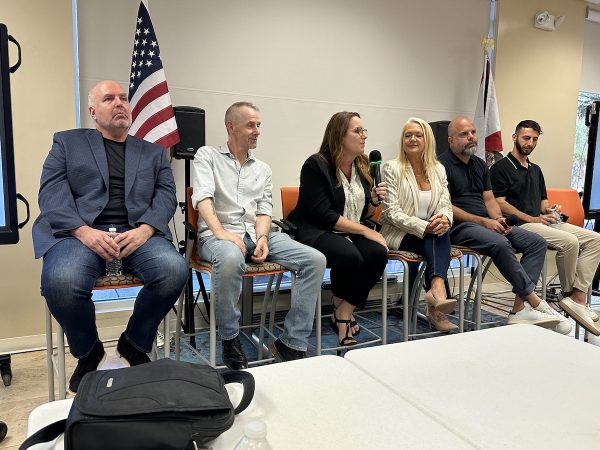
Suzanne:
- Make a plan
- Keep in mind that some technologies will affect every career path
- Ask yourself: Where do you want to be in five years?
- Talk to people who have the job you’d like to have in the future — remember, people love to talk about themselves!
- Keep learning, and course-correct along the way
Steve:
- I take inspiration from my favorite superhero of all time, Iron Man!
- I was a fan of Tony Stark from the comics, even before the Iron Man movie changed superhero movies forever
- What I love about Iton Man is that he’s not intrinsically “super,” he’s just a human augmented by technology
- What we do is help people become Iron Man in little ways
- AI is there to augment people, and it will be a regular part of your everyday life five years from now
- Be people-centric in your approach to technology
Jeff:
- In five years, I’ll hopefully be retired!
- The days of being a generalist are going or gone
- People want specialists. Pick a specialty, and if you need to, be prepared to pivot
Early career choices
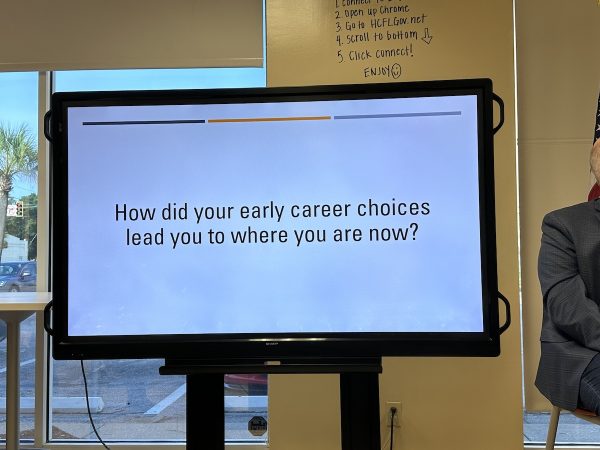
How did your early career choices lead you to where you are now?
Jeff:
- Exposure to the right mentors and indviduals
- You learn from everyone you work for — some will provide ideas and actions that you’ll want to borrow, some will be anti-examples or show you what not to do
- Don’t pick a technology just because it’s “shiny”
Steve:
- I wanted to be an accountant because my grandfather was one, but I’m terrible at math
- I also wanted to be a pilot — I have family in the Royal Air Force — but I have nerve damage that disqualifies me
- My accounting grades were an sign that I was not meant for accounting, but on the strength of what I was good at, it was suggested that I go into IT
- You need to be able to see “the fork in the road” ahead of you
Suzanne:
- I was an entrepreneur at 24, when I opened my first training center. Computer Coach is my third!
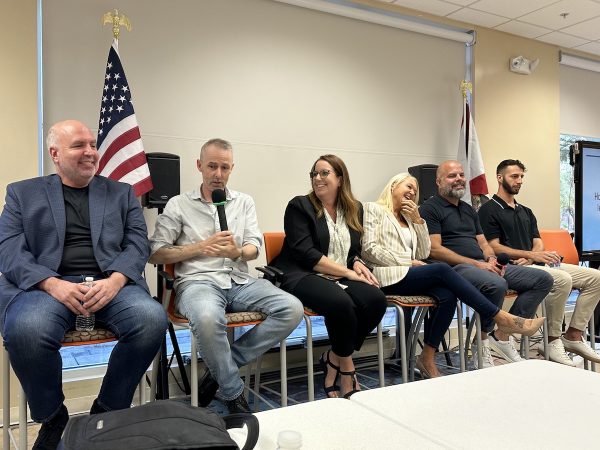
Ashley:
- I originally wanted to be a star! I went to New York City and did a lot of auditions
- When that didn’t work out, I ended up running the call center for Frontier Airlines in St. Pete, which wasn’t fun. Nobody calls an airline call center unless their trip has gone wrong
- I complained about the job, and got the suggestion that I should take an IT recruiter opening. I didn’t even know what that was, but it paid $25K + commission, and I made more than I’d ever made up to that time
Jason:
- My plan was to keep learning. My work at the Department of Energy led to my learning about information security and also how to build at scale
- And don’t forget to use those connections!
Austin:
- I’m still early in my career — I’ve been at it for only four years
- A lot of my approach boils down to not giving up and putting in some long nights
- What greatly helped me was someone writing a fire letter of recommendation for me
- You can greatly affect people when you do well by others
Q & A
The panel ended with a Q&A session — here are my notes summarizing the responses:
- You need to showcase your work in places like:
- GitHub — open source contributions can open doors
- Passion projects, whether technical or non-
- Collaborative projects — the people you collaborate with may end up being your network and references
- Use LinkedIn
- Remember that recruiters pay for the recruiter-specific version of LinkedIn (it costs about $10K a year)
- This recruiter-level subscription specifically seeks out people and what they can do by the content they produce
- Learn how to use LinkedIn to be noticed by recruiters
- Find a mentor
- A mentor can help fill in your gaps, especially leadership gaps
Afterward
The panel was followed by the informal networking session, which gave attendees a chance to catch up with old friends and acquaintances and make some new ones. It was great catching up with folks I know, and meeting some people whom I’d never met before.
